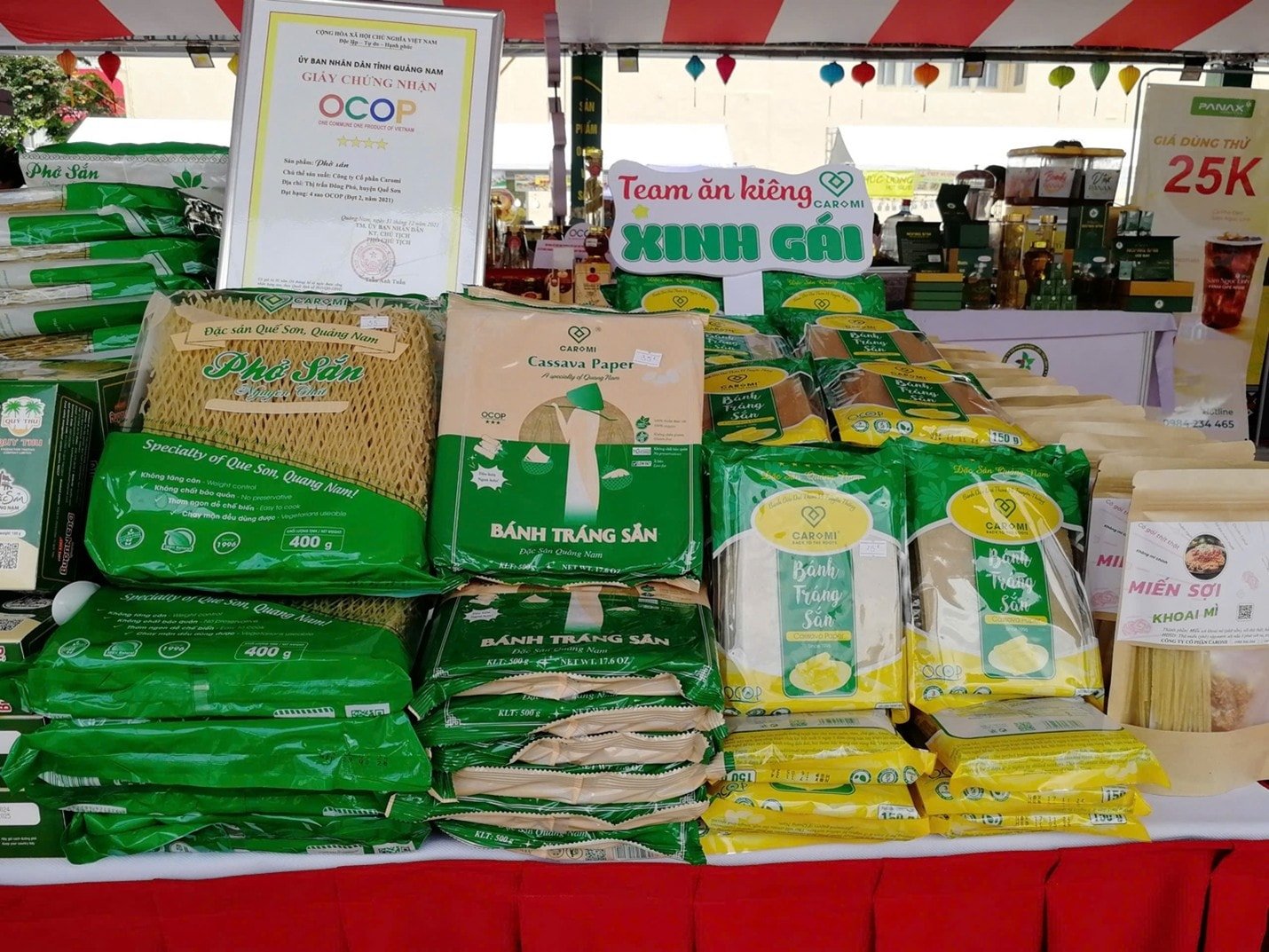
Promoting rural economy
QNa Farm Production Trade Service Cooperative (Lanh Ngoc commune) is producing many products such as ginger jam, green bean cakes, white turmeric honey pills, dried jackfruit, etc. In particular, the cooperative's brand "QNa Farm" is well received by the market and is of interest to consumers.
Ms. Pham Thi My Nuong, Director of QNa Farm Production, Trade and Service Cooperative, recalls that in 2019 she started with white turmeric starch products, a precious medicinal herb with many uses for health and beauty.
Next, realizing the inherent potential of other agricultural products such as bananas, ginger, and jackfruit, she decided to expand production and establish a cooperative in 2021. Up to now, the cooperative has many OCOP certified products such as: 4-star white turmeric pills and 3 products (white turmeric starch, green banana powder, ginger jam pills) all achieving 3-star OCOP.
Ms. My Nuong shared: “Being a mountainous area, Lanh Ngoc has favorable soil and climate, thanks to which all crops have high starch content. However, in the past, people mainly sold raw products to traders at cheap prices.
Since the establishment of the cooperative and especially when the products achieved OCOP certification, it has helped solve the output problem, as well as create stable jobs for local women. Our revenue reaches nearly 2 billion VND per year, 10 regular workers with an income of 6-10 million VND/month and about 20 seasonal workers during peak season.
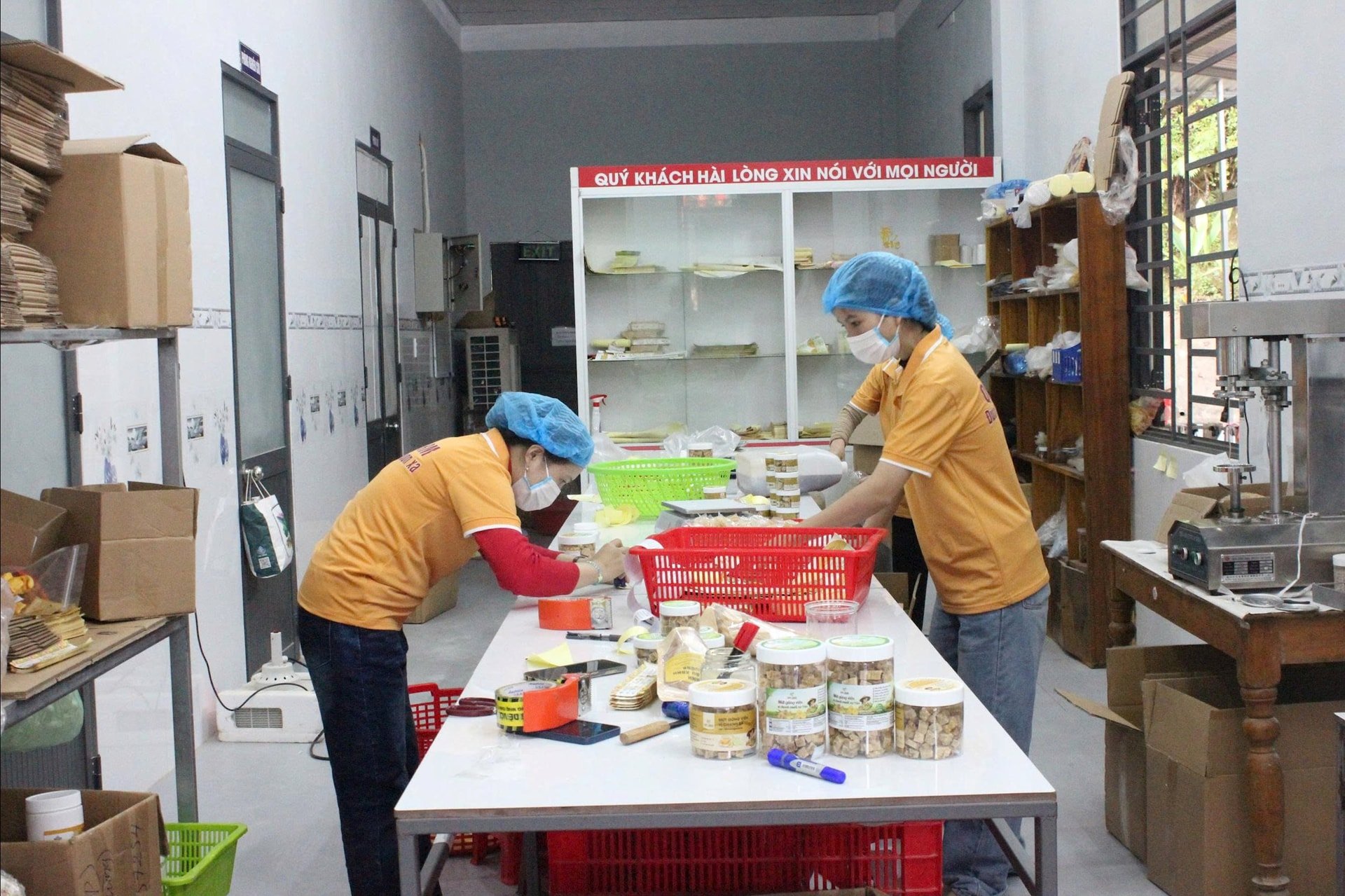
Meanwhile, Ms. Le Thi Kim Anh, Director of Caromi Joint Stock Company (Que Son Commune) said that, facing the risk of the local traditional cassava noodle craft village being lost, in 2018 her family was determined to revive the craft village. The Caromi cassava noodle project was born from that.
To date, the company’s main product lines are tapioca noodles, tapioca rice paper, spaghetti, and brown rice rice paper. Of these, two products have achieved OCOP certification: 4-star tapioca noodles and 3-star tapioca rice paper.
Thanks to the OCOP certification, Caromi products are easily accessible to supermarkets, clean food stores and are trusted by consumers. The highest number of products consumed in 1 month is about more than 4 tons. In particular, it has initially been exported to Thailand, the US, France and the Philippines.
“Starting with just a family-owned rice cooker and a pho machine, Caromi now has a factory that meets HACCP standards. The machines have gradually been equipped with more modern equipment, helping to improve labor productivity.
In addition, we are constantly improving packaging designs to meet the increasing demands of the market. In the coming time, in addition to traditional production to preserve the original flavor, Caromi continues to apply HACCP standards in production to ensure food safety, improve product quality to meet domestic standards and aim for sustainable export", Ms. Anh said.
Multi-industry value integration
According to the Department of Agriculture and Environment, the One Commune One Product (OCOP) Program has been implemented in a focused and key direction, contributing to the development of agricultural and rural economy and the development of key products and local specialties.
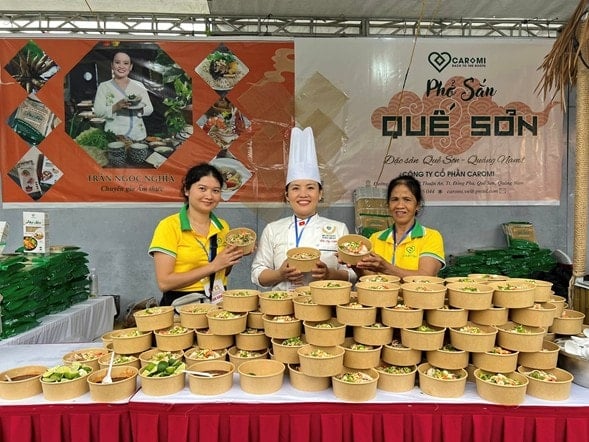
As of August 2025, the city has had 552 OCOP products recognized as 3 stars or higher; including 2 5-star products, 95 4-star products, and 453 3-star products.
The number of subjects participating in the OCOP Program is 381, of which production and business households account for 55.9%, cooperatives and cooperative groups account for 25.5%, and small and medium enterprises account for 18.6%.
The city has developed OCOP products from agricultural products, typical of each locality, region and craft village products, many exported products and actively contributed to the city's socio-economic development.
However, the development trend is not entirely commensurate with the space and potential of the merged area. Production is still small-scale, mainly at the household scale; deep processing capacity is not really strong, innovation in OCOP has not become the main driving force.
The city will focus on strongly transforming the OCOP program towards digitalization and integration of multi-sector values. In the immediate future, deploying a digital OCOP management platform integrating QR codes, digital maps and virtual reality technology (VR/AR) to introduce products; building a model of "OCOP creative commune" associated with tourism, culture and community experiences.
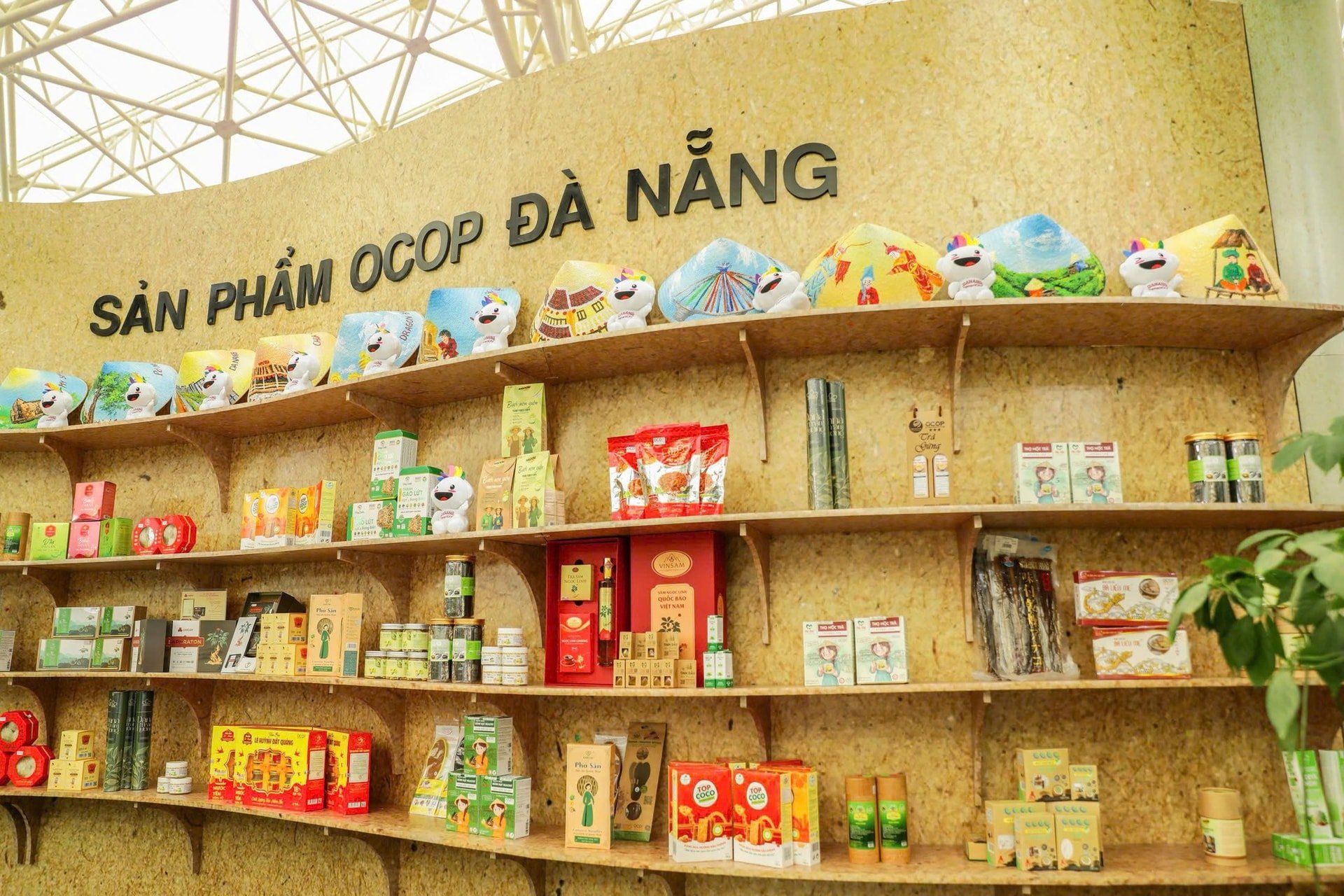
At the same time, promote cross-border e-commerce through e-commerce platforms; prioritize the development of 5-star OCOP products, 5-star potential, linked to key industries and towards green, circular economy, integrating multi-value to enhance competitiveness at home and abroad.
To carry out the above key tasks, in the coming time, the city's agricultural sector will focus on reviewing, adjusting and linking agricultural production planning after the merger, especially in concentrated production areas, high-quality rice areas and high-tech agricultural zones.
In addition, propose synchronous support policies on preferential credit, land, plant varieties, livestock, support for cooperatives, development of OCOP products, promotion of organic, ecological, and circular agriculture; focus on building chains from production to processing and consumption, forming concentrated raw material areas and processing factories that meet international standards.
In addition, develop nature reserves such as green lim, kien kien, and pơmu to protect biodiversity, combining effective exploitation of medicinal plants under the forest canopy in a sustainable direction.
Source: https://baodanang.vn/phat-huy-noi-luc-da-gia-tri-cho-san-pham-ocop-3304938.html


![[Photo] General Secretary To Lam receives US Ambassador to Vietnam Marc Knapper](https://vphoto.vietnam.vn/thumb/1200x675/vietnam/resource/IMAGE/2025/9/29/c8fd0761aa184da7814aee57d87c49b3)

![[Photo] National Assembly Chairman Tran Thanh Man chairs the 8th Conference of full-time National Assembly deputies](https://vphoto.vietnam.vn/thumb/1200x675/vietnam/resource/IMAGE/2025/9/29/2c21459bc38d44ffaacd679ab9a0477c)
![[Photo] General Secretary To Lam chairs the meeting of the Central Steering Committee on preventing and combating corruption, waste and negativity](https://vphoto.vietnam.vn/thumb/1200x675/vietnam/resource/IMAGE/2025/9/29/fb2a8712315d4213a16322588c57b975)
![[Photo] Many streets in Hanoi were flooded due to the effects of storm Bualoi](https://vphoto.vietnam.vn/thumb/1200x675/vietnam/resource/IMAGE/2025/9/29/18b658aa0fa2495c927ade4bbe0096df)
![[Photo] General Secretary To Lam attends the ceremony to celebrate the 80th anniversary of the post and telecommunications sector and the 66th anniversary of the science and technology sector.](https://vphoto.vietnam.vn/thumb/1200x675/vietnam/resource/IMAGE/2025/9/29/8e86b39b8fe44121a2b14a031f4cef46)
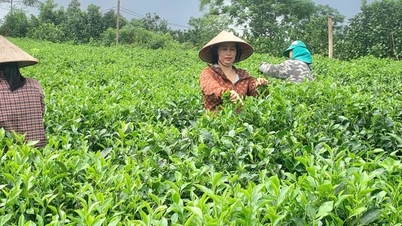

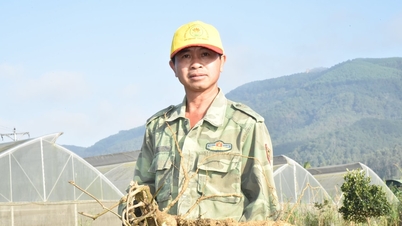

![[Podcast] Hanoi opens 'Digital Store' on Shopee, bringing the capital's traders to the world](https://vphoto.vietnam.vn/thumb/402x226/vietnam/resource/IMAGE/2025/9/24/536e697cb68b4f638905088a9bebda6e)

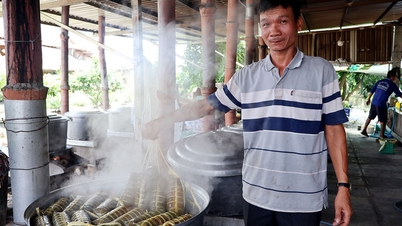







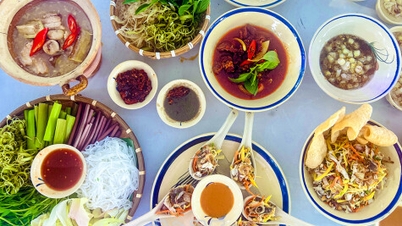












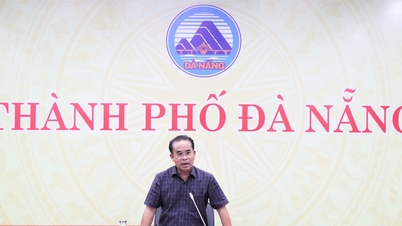
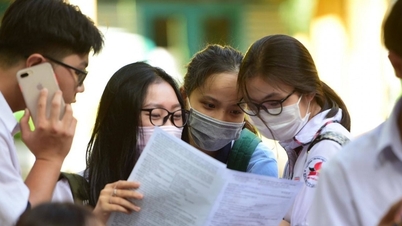


















































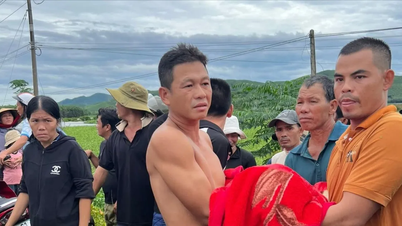

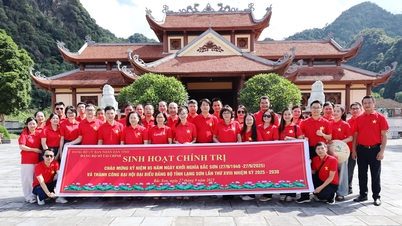

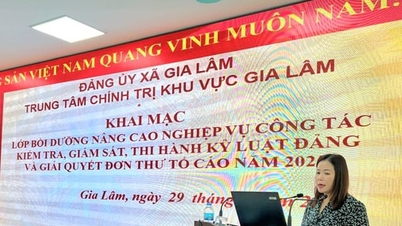














Comment (0)